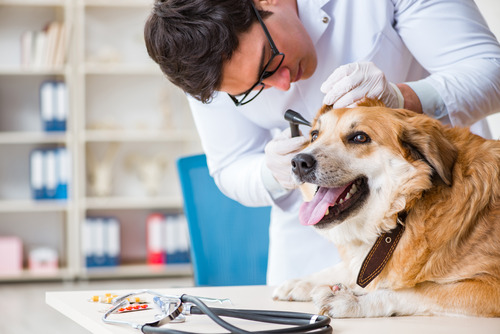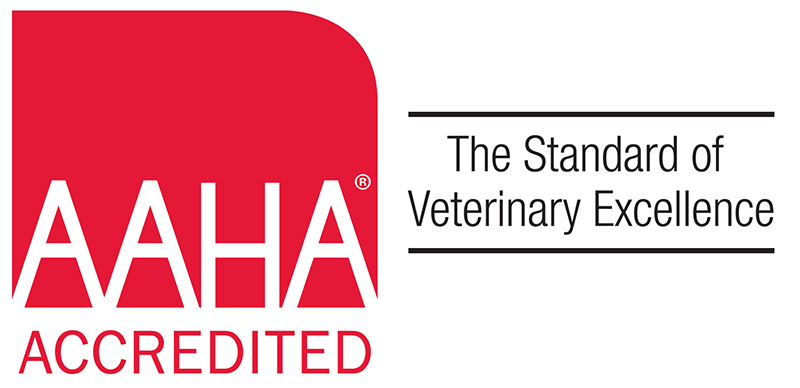Vaccines are a vital part of keeping your dog healthy, safeguarding them against serious diseases. However, like any medical treatment, they can have side effects. One question that pet owners often have is whether dogs can have allergic reactions to vaccines. At Triangle Animal Clinic in Conroe, TX, we believe it’s important to inform our community about these rare but possible reactions. This blog aims to explore the topic in-depth, ensuring you’re well-equipped with the knowledge needed to care for your dog. Should you have any concerns or need to schedule an appointment, don’t hesitate to call us at (936) 756-3318.
What are Vaccine Reactions in Dogs?
Vaccine reactions in dogs can range from mild to severe. It’s essential to understand that these reactions are not the same as the disease symptoms the vaccine is designed to prevent. They’re typically the body’s immune response to the vaccine. Common mild reactions include:
- Lethargy
- Mild fever
- Discomfort at the injection site
- Allergic reactions such as hives or facial swelling
Being aware of these signs helps ensure that your dog gets timely care.
Types of Allergic Reactions to Dog Vaccines
Allergic reactions to dog vaccines can be classified into two categories: immediate and delayed. Immediate reactions, which are rarer, can occur within minutes to a few hours post-vaccination and might present as anaphylaxis, which is a severe, life-threatening reaction. Delayed reactions can occur several hours to days after vaccination and often manifest as skin rashes, swelling, or even digestive upset. Recognizing these types of reactions is crucial for early intervention.
Immediate Reactions
These reactions occur within minutes to a few hours after vaccination. Anaphylaxis is one example of a severe, rapid onset allergic reaction that can be life-threatening. Symptoms may include sudden onset of vomiting, diarrhea, difficulty breathing, collapse, or seizures. Additional key symptoms of immediate reactions include:
- Severe Itching or Hives: Look for signs of excessive scratching, red skin, or raised, red bumps on the skin.
- Facial Swelling: Swelling around the face, particularly the eyes and lips, can be a tell-tale sign of an immediate allergic reaction.
- Vomiting or Diarrhea: Sudden onset of gastrointestinal symptoms can indicate a severe reaction.
- Collapse or Seizures: In extreme cases, the dog may collapse or have seizures.
Delayed Reactions
These reactions typically occur several hours to days after the vaccination. Their symptoms can be less dramatic but still concerning:
- Skin Rashes or Hives: Appearing later than in immediate reactions, these are often less severe but persist longer.
- Swelling at the Injection Site: This can occur and may last a few days.
- Lethargy or Decreased Appetite: Your dog might seem unusually tired or disinterested in food.
- Mild Fever: A slight increase in body temperature can be a delayed response to a vaccine.
- Behavioral Changes: Some dogs may show signs of discomfort or unusual behavior.
Causes of Vaccine Allergic Reactions in Dogs
Several factors can contribute to a dog’s likelihood of having an allergic reaction to a vaccine. These include the type of vaccine, the dog’s breed, age, and health status. Some breeds are more prone to allergic reactions, while younger and older dogs might have a different response compared to adult dogs. Also, dogs with a history of allergies or immune-mediated diseases may be at an increased risk. Understanding these factors can help in making informed vaccination decisions.
Managing and Preventing Vaccine Reactions in Dogs
Preventing severe reactions involves a collaborative effort between the pet owner and the veterinarian. Always inform your vet about any past vaccine reactions in your dog or any known allergies. For dogs at higher risk, your vet might recommend pre-treatment with antihistamines or splitting vaccines over multiple visits. Monitoring your dog closely after vaccination and reporting any unusual symptoms immediately can also help manage potential reactions effectively.
Importance of Vaccine Schedules
Sticking to a recommended vaccine schedule is crucial for your dog’s health. It ensures they’re protected against diseases while minimizing the risk of over-vaccination. Your veterinarian at Triangle Animal Clinic can tailor a vaccine schedule that considers your dog’s specific health needs and risk factors, providing optimal protection with minimal risk.
What to Do If Your Dog Has a Vaccine Reaction
If you suspect your dog is having a reaction to a vaccine, prompt action is key. Mild reactions often resolve on their own, but monitoring your dog closely is important. For more severe reactions, immediate veterinary attention is necessary. At Triangle Animal Clinic, we’re committed to providing prompt care for vaccine reactions. Should you need us, call (936) 756-3318 for guidance or to schedule an emergency visit.
Ensuring Long-Term Health and Comfort
After a vaccine reaction, follow-up care may be necessary to ensure your dog’s long-term health and comfort. This can include medication to alleviate symptoms, observation for any further reactions, and adjustments to future vaccine protocols. Your vet will guide you through this process, ensuring your dog’s health and well-being remain our top priority.
Staying Informed for Your Dog’s Health
Vaccinations play a crucial role in maintaining your dog’s health, but being aware of potential allergic reactions is equally important. At Triangle Animal Clinic in Conroe, TX, we’re here to provide information and care every step of the way. For any questions or to schedule an appointment for your dog, please call us at (936) 756-3318. Together, we can ensure the health and happiness of your beloved companion.






